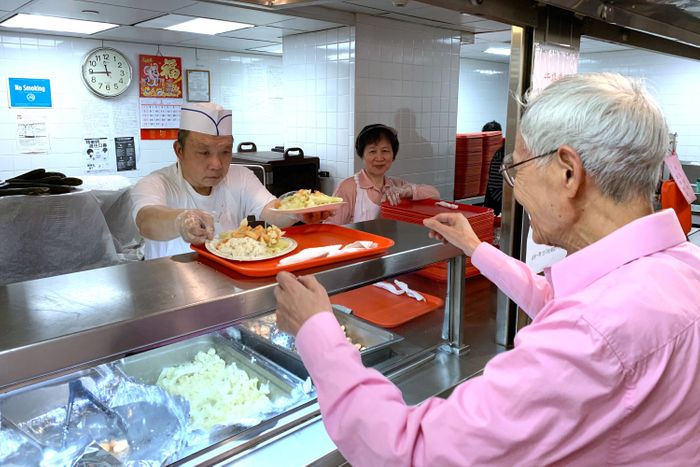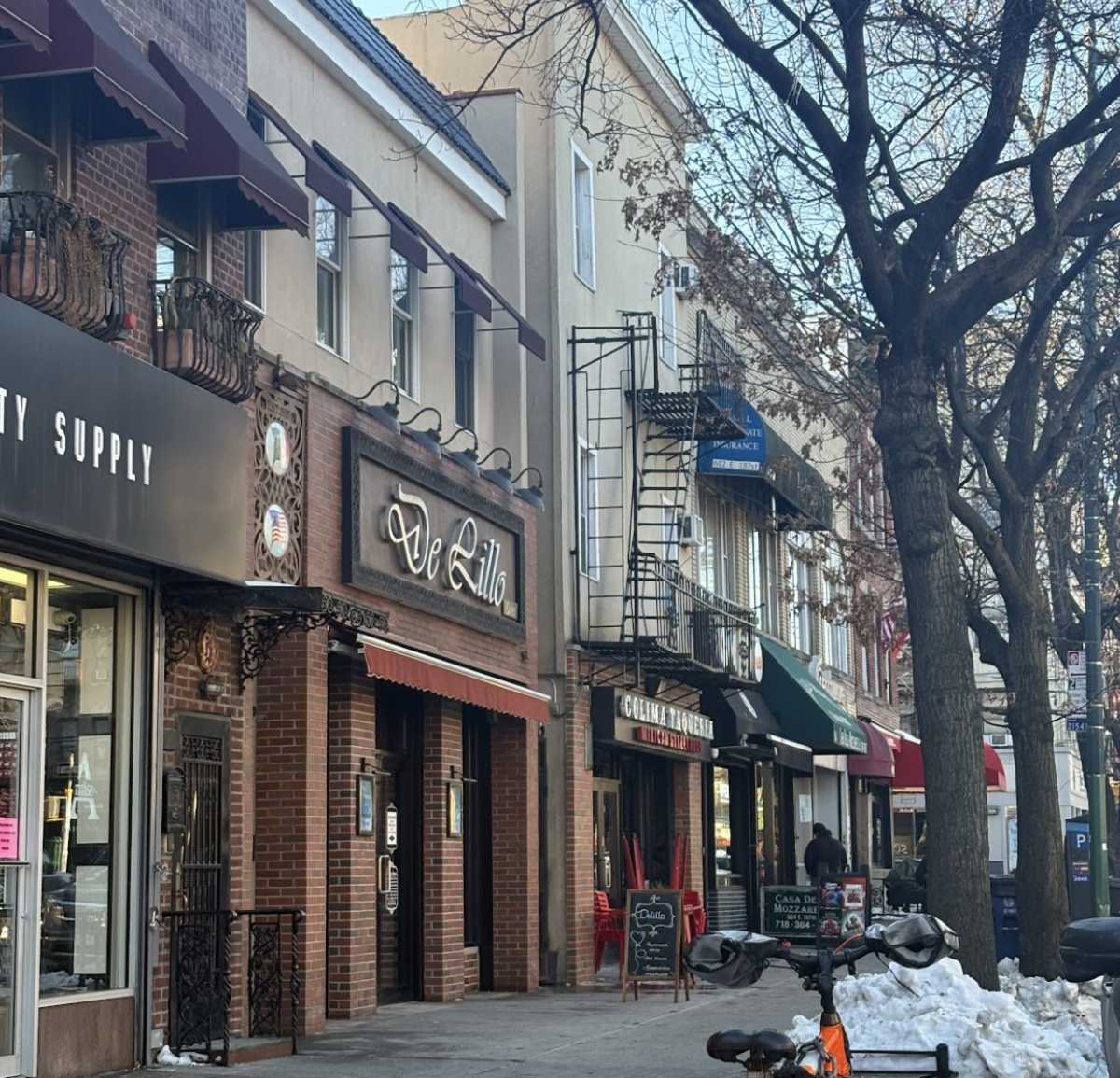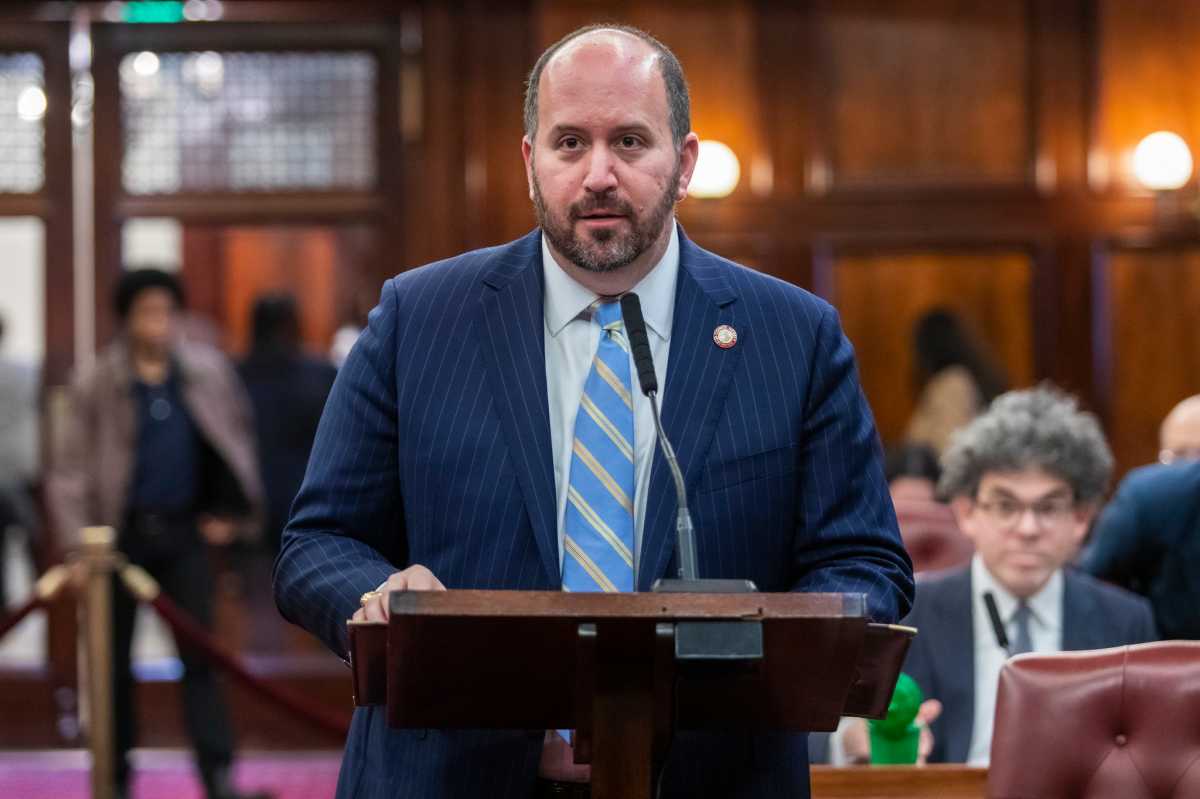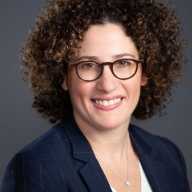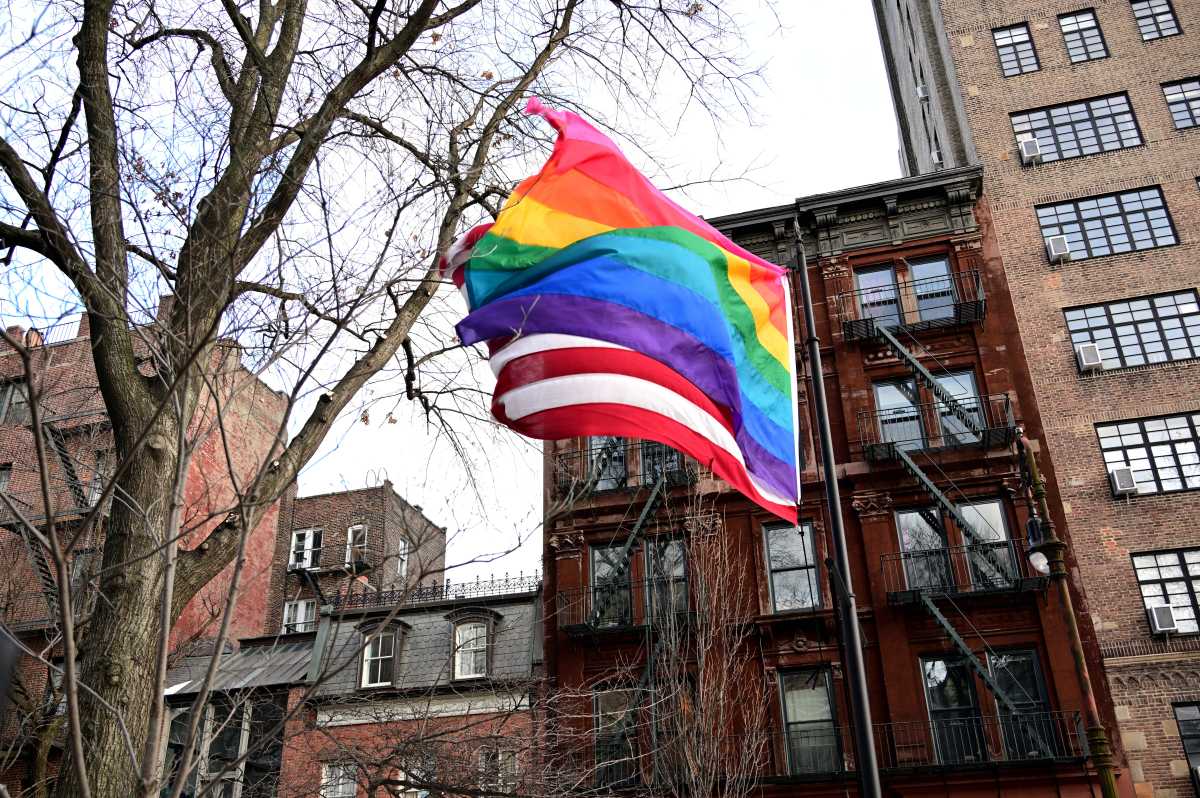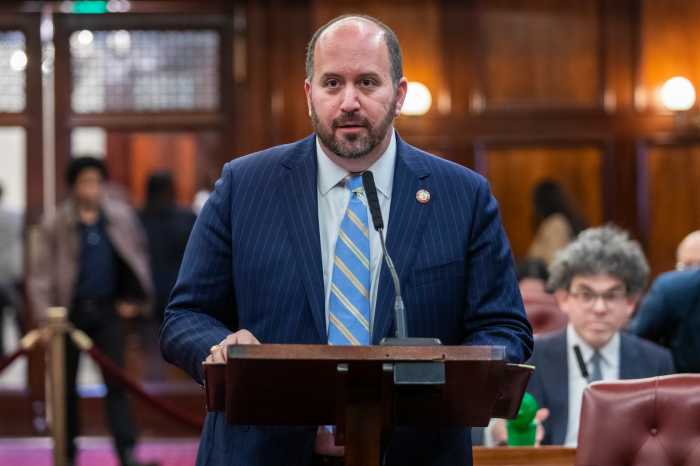By Gabriel Sandoval and Claudia Irizarry Aponte, Additional Reporting By Josefa Velasquez

This story was originally published on March 9, 2020 by THE CITY.
At the Open Door Senior Center in Manhattan’s Chinatown, the Ping-Pong room is usually so packed that there’s often a 20-minute wait to play on one of three tables.
But before lunchtime Wednesday, just four players occupied two tables.
“Today is empty,” said Yuk Loo, 68, one of the table tennis players.
She said she visits the center on weekdays to socialize and eat lunch. “A lot of them tell me, ‘Don’t come,’” Loo said. But, she added, “it’s too boring to stay home.”
Concerns over coronavirus — underscored by warnings from health authorities that the elderly are especially vulnerable to fatal infection — have prompted many seniors to stay home.
That’s spurred concerns that some people may be missing out on much-needed meals.
Little Direction on Food
Wayne Ho, head of the Chinese-American Planning Council (CPC), which operates Open Door and two other senior centers, said staffers have been doing phone checks on those who remain home.
But the nonprofit hasn’t received guidance from senior-serving government agencies on how to adapt their programs to provide meals to absent clients.
“While the city and state have been good about putting out general guidance about hygiene and cleanliness and sanitation, we need each city agency, including the Department for the Aging and the New York State Office for the Aging, to put out very specific guidance on what senior programs should do,” Ho told THE CITY.

So as places like Open Door see a drop in attendance — Ho reported “a 10 to 20% dip” in the last two weeks at one center — providers worry about how those who stay home are being fed.
“At our senior centers, that could be their one time to get a hot meal for the day,” said Ho, who noted upwards of 300 people a day are usually served at a single facility.
The CPC hasn’t begun delivering food yet. Ho said that would turn the nonprofit into a type of “meals on wheels” program.
“Is the city and state gonna let me do that?” he said, adding that he hopes officials will be flexible.
Plans Not Complete
The answer to Ho’s question is, maybe.
On Wednesday evening, the Department for the Aging emailed providers: “We are reaching out to you to assess your program’s capacity, should the need arise, to deliver meals to your members’ homes” — asking for responses within 24 hours.
Previously, the department asked elder-care providers to follow the city Department of Health and Mental Hygiene’s coronavirus control guidelines for “congregate settings,” spaces where large numbers of people reside or gather.
Under the new guidelines, the nearly 250 city-funded senior centers must screen visitors upon arrival for fever or signs of respiratory illness. That includes asking people if they’ve felt sick, had any symptoms or traveled abroad recently. The Health Department also recommends taking the temperature of regular visitors.

If a visitor is sick, providers should call 311 or the person’s primary care physician and coordinate to take them home, if necessary, according to Suzanne Myklebust, a spokesperson for the Department for the Aging.
In addition, providers must submit a daily coronavirus wellness update to the agency “until further notice” — using a form to log the number of people who’ve asked for medical assistance, calls to 311 and people who were sent home.
Myklebust told THE CITY that the agency is also working with City Hall’s food access team “to plan to deliver food to older adults who cannot visit senior centers,” in the event the outbreak gets worse. When that plan will be finalized remains unclear.
On Wednesday, State Health Department Commissioner Howard Zucker said that officials are working on guidelines for adult day care centers and other places where seniors gather, similar to those issued to nursing homes late last week.
“We have to tailor it for each individual facility depending on how many people are there, the structure, how it’s designed,” Zucker said at a news conference at the Capitol in Albany.
“That is the most dangerous situation posed by this virus — senior citizens, people with compromised immune systems, people with an underlying illness in a congregate facility,” he added.
Taking Precautions
Meanwhile, lunchtime was bustling Wednesday at the YH & YWHA of Washington Heights and Inwood, as chatty diners consumed bowls of vegetable stew and rice and beans.
The front door and reception area were covered in notices warning sick visitors to stay home and seek medical advice.
The Y accommodates about 1,000 people a daily, one-fifth of them seniors, according to spokesperson Lisa-Michelle Kucharz.
Kucharz noted the Y has seen a 25% decline in senior attendance for on-site programs, including lunch, since coronavirus warnings began.
“We have not experienced a decline in attendance for any other age group or program,” she told THE CITY.
At the nearby Inwood Senior Center, a staffer who asked not to be named said workers are disinfecting the restrooms every two hours. Each time a diner leaves, the staff deep-cleans their table and chair.
At the Open Door Senior Center, a long line formed during lunchtime, despite the attendance drop. Shrimp was served with white rice and vegetables, along with milk and apple juice.
In the dining area, many tables and chairs remained unoccupied.
Po-Ling Ng, the longtime director of Open Door, greeted people in line. She said the center will always take care of its seniors.
“We make sure they are happy and enjoy their life,” she said. “When they come over here, we will take good care of them. Food? OK. Housing? OK. Health problem? No problem.”
This story was originally published by THE CITY, an independent, nonprofit news organization dedicated to hard-hitting reporting that serves the people of New York.



